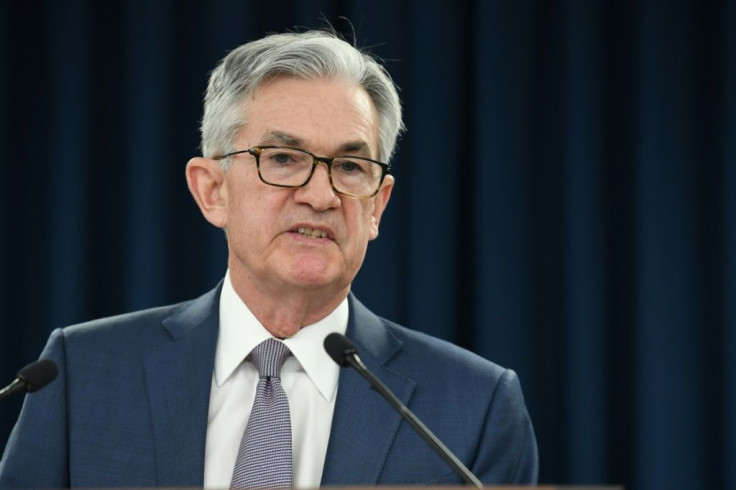Fed's Powell Downplays Inflation Fears, Pledges To Keep Rates Low
Federal Reserve Chairman Jerome Powell attempted to tamp down rising inflation concerns, and again on Tuesday pledged to keep benchmark lending rates low until jobs recover and prices have risen consistently.
The Covid-19 pandemic remains the key factor determining how quickly the world's largest economy can recover, but Powell said vaccine rollouts offer hope things can return to normal quickly and the Fed has the tools to deal with price increases.
With Congress moving towards approving President Joe Biden's $1.9 trillion rescue plan, the central bank chief remained steadfastly noncommittal about the package, but he did downplay the need to address the $3 trillion US government deficit immediately.
Amid growing fears on markets that a quick recovery from the pandemic -- fueled by more government stimulus on top of nearly $3 trillion last year -- will lead to higher interest rates and hinder the ability of companies to borrow, Powell tried to reassure skittish investors during the first day of his semi-annual testimony before Congress.
He insisted that the Fed will keep rates at the current level near zero until the economy reaches "maximum employment and inflation has risen to 2 percent and is on track to moderately exceed 2 percent for some time."
However, he cautioned, "the economy is a long way from our employment and inflation goals, and it is likely to take some time for substantial further progress to be achieved."
Powell has said the true level of joblessness is closer to 10 percent than the official rate of 6.3 percent in January.
He said inflation is expected to pick up and will be "volatile" this year, after declines during the past year of the pandemic, and as Americans begin to spend more.
However, he told the Senate Banking Committee those price increases are unlikely to be large or persistent.
"We've averaged less than two percent inflation, over the last 25 years," Powell said. "Inflation dynamics do change over time but they don't change on a dime."
And he stressed that the Fed is prepared to handle whatever comes its way, so "if it does turn out that unwanted inflation pressures arising are persistent and we have the tools to deal with that."
In more than a decade following the 2008 global financial crisis, inflation barely cracked the Fed's 2.0 percent goal, even when unemployment reached a 50-year low of 3.5 percent in early 2020.

That caused the central bank to rethink policy, and say that rather than raise the lending rate as unemployment falls to head off inflation, it will hold fire until inflation actually breaks through the target level for an extended period.
But given the prospect for more stimulus fueling a rapid bounceback in economic activity, some economists have raised concerns that prices could spiral.
The yield on 10-year Treasury bonds -- a key red flag on inflation -- has spiked in recent weeks. That in turn has hit stock prices due to concerns the Fed will have to raise interest rates more quickly than expected in an economy already awash in debt.
In addition to keeping the key interest rate low, the central bank also will continue to buy bonds "at least at their current pace (of $120 billion a month) until substantial further progress has been made toward our goals," Powell said.
Government spending and the Fed keeping its foot on the gas has helped the economy stabilize and begin to recover, although it still has a way to go, Powell said.
"The path of the economy continues to depend significantly on the course of the virus," he said, but "ongoing progress in vaccinations should help speed the return to normal activities."
Powell has repeatedly stressed the benefits of low joblessness to allow the benefits of the growing economy to reach African Americans and Hispanics who have been hardest hit by business closures caused by the pandemic.
But though several Senators pressed him to express an opinion on the Biden stimulus plan, he steadfastly refused.
"I think by being either cool or uncool" with the spending "I would have to be expressing an opinion," he told.
And when Republican Senator John Kennedy of Louisiana asked him if "we ought to go Catwoman on the budget," Powell was stumped.
While he agreed the government would have to deal with the $3 trillion budget deficit "it doesn't need to happen now and now is the wrong time to be do that."
© Copyright AFP 2024. All rights reserved.




















